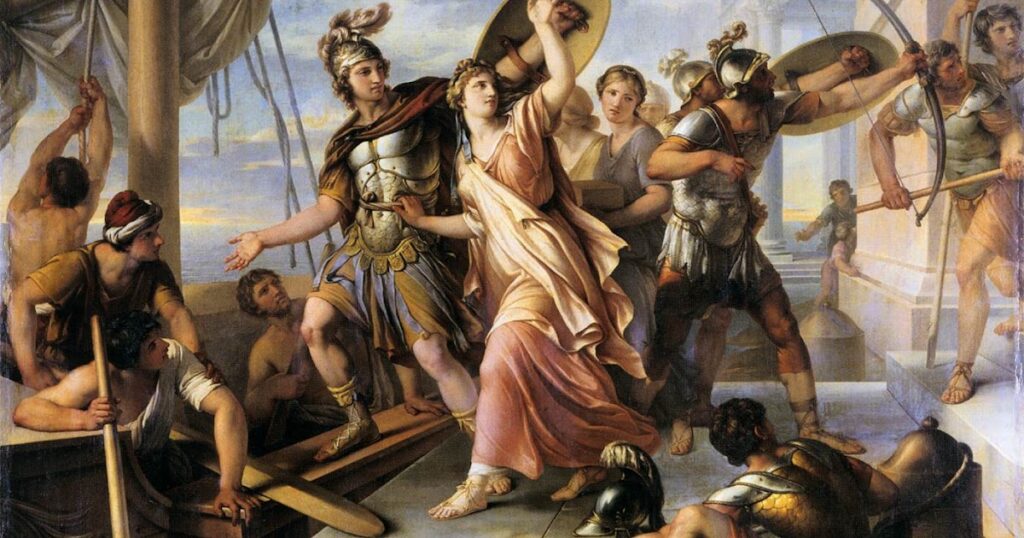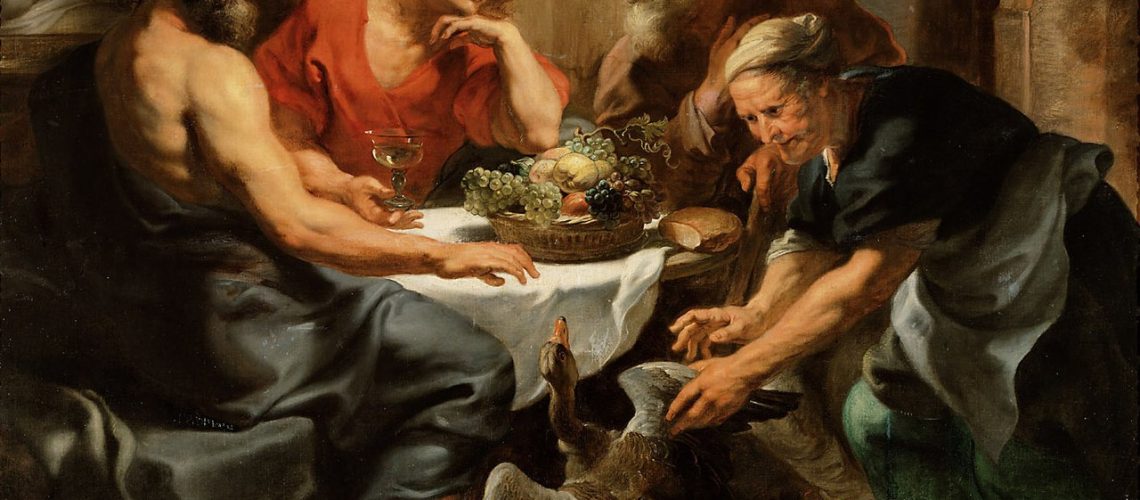Upon reading Homer’s Iliad and Odyssey, I was surprised to read about how welcoming the characters were to strangers seeking refuge in their homes. It seemed like whenever Odysseus needed shelter and food, he got it. I wondered why and discovered that it was all thanks to a concept called xenia.
Xenia was a practice of “guest-friendship” that promoted relationships between hosts and foreigners. Today, we get words such as xenophobia (the fear of something foreign) and xenial (relating to host-guest hospitality) from the Greek root.
It had two main rules. For one, hosts had to take care of guests, including giving them food, drink, shelter, gifts, and other forms of generosity. The host could not ask the guests any questions about their identity before the host had provided adequate resources. On the other hand, guests also had to respect their hosts’ homes. The guests could not become a burden to the hosts, such as by overstaying their welcome. They were expected to tell stories and report on their travels. Guests are also expected to welcome their hosts if needed in the future.
Why did they practice this? Well, it mainly stemmed from a fear that a guest might be a god disguised as a mortal. Theoxenia was a common theme in stories where a host would provide resources to a stranger, and that stranger turned out to be a deity. If the guest were treated poorly and were a god, the host would have to suffer great punishment. Therefore, providing hospitality to all guests was a religious obligation to avoid punishment from the gods, primarily Zeus (who is often referred to as Zeus Xenios for his protection of strangers).
Homer’s works demonstrate xenia to a large extent. In book 6 of the Iliad, Diomedes and Glaucus were two men who were about to engage in a fight with each other. However, Diomedes explains that their fathers practiced xenia between each other. In the end, the two men don’t fight and instead exchange gifts. The Iliad also describes an example of a bad practice of xenia. When Homer describes the Trojan War, a man named Paris was the guest of Menelaus, the king of Sparta. Yet, in Menelaus’ home, Paris steals his wife Helen, one of the worst and most insulting things he could have done. As a result, Troy, where Paris is from, falls.


